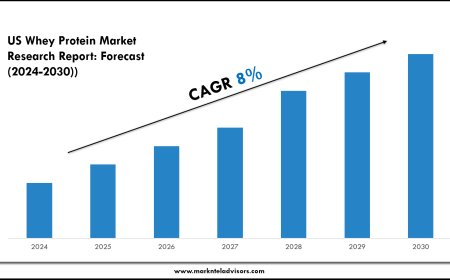Top 10 Organic Food Brands to Know
Introduction The global shift toward healthier, more sustainable living has propelled organic food into the mainstream. What was once a niche market for health enthusiasts is now a multi-billion-dollar industry, with consumers increasingly seeking products free from synthetic pesticides, genetically modified organisms, and artificial additives. But with so many brands labeling themselves “organic,
Introduction
The global shift toward healthier, more sustainable living has propelled organic food into the mainstream. What was once a niche market for health enthusiasts is now a multi-billion-dollar industry, with consumers increasingly seeking products free from synthetic pesticides, genetically modified organisms, and artificial additives. But with so many brands labeling themselves organic, how do you know which ones truly deliver on their promises?
Trust is no longer a luxuryits a necessity. Behind every organic label lies a story of farming practices, supply chain integrity, and corporate ethics. Not all organic brands are created equal. Some invest in third-party certifications, transparent sourcing, and environmental stewardship. Others rely on marketing buzzwords without substance.
This guide reveals the top 10 organic food brands you can truly trust. Each has been evaluated based on rigorous criteria: certified organic status, ingredient transparency, environmental impact, ethical labor practices, and consistent consumer reputation. Whether youre shopping for pantry staples, snacks, dairy, or produce, these brands offer peace of mind without compromise.
Why Trust Matters
The term organic is regulated in most developed countries, but enforcement and interpretation vary. In the United States, the USDA Organic seal requires that products contain at least 95% organically produced ingredients. In the European Union, the Euro-leaf logo guarantees compliance with strict agricultural standards. Yet, even with these certifications, not all brands uphold the spirit of organic principles.
Some companies source ingredients from large-scale monoculture farms that, while technically certified, deplete soil health and rely on mechanized systems far removed from traditional organic ideals. Others may use organic labels on a single product line while their parent company engages in non-sustainable or unethical practices elsewhere.
True organic integrity goes beyond certification. It demands transparencyclear labeling, traceable supply chains, and accountability. It requires a commitment to regenerative agriculture, biodiversity, and reducing carbon footprints. It means fair treatment of farmers and workers, not just compliance with minimum standards.
Consumers today are more informed than ever. They read ingredient lists. They research brands. They ask questions about where food comes from and how its grown. Trust is earned through consistency, honesty, and actionnot advertising.
Choosing a trusted organic brand isnt just about personal health; its a vote for the kind of food system you want to support. When you buy from a brand that aligns with your values, you help shift the market toward sustainability, equity, and long-term ecological balance.
Top 10 Organic Food Brands to Know
1. Annies Homegrown
Annies Homegrown has been a pioneer in bringing organic, kid-friendly foods to mainstream shelves since its founding in 1989. What began as a small operation selling organic macaroni and cheese has grown into a comprehensive line of pasta, snacks, sauces, and frozen mealsall certified organic by the USDA.
Annies stands out for its commitment to transparency. Every product lists its sourcing practices on its website, and the company actively partners with family farms across the U.S. to source non-GMO grains, dairy, and vegetables. The brand also champions environmental causes, pledging to reduce plastic packaging and support pollinator-friendly agriculture.
Its iconic bunny logo is more than brandingit represents a promise: no artificial flavors, synthetic preservatives, or high-fructose corn syrup. Annies has also been a vocal advocate for GMO labeling laws, reinforcing its credibility as a brand that walks the talk.
2. Natures Path
Founded in 1985 by a Canadian family passionate about organic farming, Natures Path is one of the oldest and most respected names in organic breakfast foods. Its extensive range includes cereals, granolas, waffles, and frozen pancakes, all certified organic and non-GMO verified.
What sets Natures Path apart is its deep-rooted environmental ethos. The company operates on 100% wind-powered facilities, uses compostable packaging, and has donated over $10 million to organic farming initiatives through its Organic Living Foundation. It also supports regenerative agriculture by working directly with farmers to restore soil health.
Natures Path products are free from artificial colors, flavors, and preservatives. Many items are also gluten-free and vegan, making them accessible to diverse dietary needs. The brands transparency extends to its ingredient sourcing, with detailed maps showing where each grain, fruit, and nut originates.
3. Organic Valley
Organic Valley is a farmer-owned cooperative representing over 2,000 organic dairy farms across the United States. Unlike corporate dairy giants, Organic Valleys structure ensures that profits flow directly back to the farmers who produce the milk, cheese, butter, and eggs.
Every product carries the USDA Organic seal and is certified by the Non-GMO Project. The cooperative prohibits the use of synthetic hormones, antibiotics, and confined animal feeding operations. Cows are required to graze on pasture for at least 120 days per year, promoting animal welfare and nutrient-rich milk.
Organic Valleys commitment to sustainability is unmatched. It invests in renewable energy, carbon-neutral transportation, and water conservation programs. The brand also educates consumers on the environmental benefits of choosing organic dairy, including reduced greenhouse gas emissions and improved soil health.
Its wide range of productsfrom cottage cheese to plant-based alternativesmakes it a versatile choice for households seeking clean, ethical dairy.
4. Dr. Bronners
Best known for its iconic liquid castile soap, Dr. Bronners has also built a respected line of organic food products, including fair trade cocoa, coconut oil, and organic sugar. The companys mission extends far beyond commerceit champions social justice, environmental regeneration, and ethical sourcing.
All food products are certified USDA Organic and Fair Trade Certified by Fair Trade USA. Dr. Bronners sources its ingredients from smallholder farms in Ghana, Sri Lanka, and Peru, paying premiums that exceed fair trade minimums to ensure farmers can thrive.
The company is a leader in regenerative organic agriculture, having helped establish the Regenerative Organic Certified (ROC) standard. This certification goes beyond organic by requiring high animal welfare standards and fair labor practices. Dr. Bronners uses 100% recycled packaging and is a certified B Corporation, meeting the highest standards of social and environmental performance.
Its food products are simple, pure, and unadulteratedfree from additives, preservatives, and refined sugars. Dr. Bronners doesnt just sell organic food; it sells a vision of a more just and sustainable world.
5. Whole Foods 365
As the private-label brand of Whole Foods Market, 365 Everyday Value has become one of the most trusted names in affordable organic groceries. Its extensive range includes everything from canned beans and spices to frozen vegetables, pasta, and plant-based meatsall certified organic and free from artificial ingredients.
What makes 365 trustworthy is its strict internal sourcing standards, which often exceed USDA Organic requirements. The brand prohibits over 100 synthetic additives and requires full traceability from farm to shelf. Whole Foods rigorous supplier audits ensure compliance with ethical labor and environmental practices.
365s strength lies in accessibility. It offers high-quality organic products at prices comparable to conventional brands, making organic eating feasible for middle-income households. The brand also prioritizes inclusivity, offering gluten-free, vegan, and allergen-friendly options across its product lines.
While its a corporate brand, 365 maintains transparency through detailed product pages and public reports on sustainability goals. Its scale allows it to drive market change by creating demand for organic ingredients at volume.
6. Bobs Red Mill
Founded in 1978 by Bob Moore, Bobs Red Mill is a family-run business that has become synonymous with whole-grain, organic baking essentials. Its products include flours, grains, seeds, baking mixes, and gluten-free alternativesall certified organic and non-GMO verified.
Bobs Red Mill stands out for its commitment to stone-grinding, a traditional method that preserves the nutritional integrity of grains. The company operates a dedicated gluten-free facility to prevent cross-contamination, making it a trusted choice for those with sensitivities.
Every product is clearly labeled with its origin, and the brand publishes detailed information about its sourcing partners. Bobs Red Mill supports small-scale organic farmers and invests in grain research to improve crop resilience and nutrient density.
Its dedication to education is another hallmark. The company provides free recipes, cooking guides, and nutritional information to empower home bakers. With no artificial additives and a focus on whole-food ingredients, Bobs Red Mill remains a staple in organic kitchens worldwide.
7. Eden Foods
Eden Foods has been a quiet force in the organic movement since 1968, emphasizing purity, tradition, and environmental responsibility. Its product line includes organic canned beans, tomatoes, sauces, miso, and seaweedall free from BPA linings, preservatives, and synthetic additives.
What distinguishes Eden Foods is its refusal to compromise. The company sources only certified organic, non-GMO ingredients and avoids all artificial flavors, colors, and sweeteners. Its canned goods use glass jars or BPA-free linings, and its packaging is designed for minimal environmental impact.
Eden Foods partners with small organic farms and cooperatives, many of which have been supplying the company for decades. It also maintains its own organic farm in Michigan, where it grows soybeans and other legumes using traditional crop rotation methods.
The brand is deeply committed to cultural preservation, offering traditional fermented foods like miso and tempeh that support gut health and ancestral dietary practices. Eden Foods does not advertise heavilyits reputation is built on decades of consistent quality and integrity.
8. Lundberg Family Farms
Lundberg Family Farms, established in 1937, is one of the few organic rice producers in the U.S. with a multi-generational legacy. Its organic brown rice, rice cakes, and rice-based snacks are staples in health-conscious households.
All Lundberg products are USDA Organic, Non-GMO Project Verified, and crafted using sustainable farming techniques. The company pioneered wetland rice farming that mimics natural ecosystems, reducing water usage and promoting biodiversity. It also avoids synthetic fertilizers and pesticides, relying instead on crop rotation and natural pest control.
Lundberg is a leader in carbon-neutral agriculture. The company has reduced its greenhouse gas emissions by over 80% since 2005 through solar energy, methane capture, and efficient processing. It also supports soil health by returning rice straw to fields as natural compost.
Its commitment to transparency is evident in its detailed farm maps and public sustainability reports. Lundbergs products are free from artificial flavors, preservatives, and additives, making them ideal for clean-label diets.
9. Kashi
Kashi, founded in 1984, began as a small health food store in California and has evolved into a major organic brand known for its whole-grain cereals, bars, and frozen meals. While now owned by Kelloggs, Kashi maintains a distinct identity rooted in organic integrity and nutritional science.
All Kashi products are Non-GMO Project Verified, and many carry the USDA Organic seal. The brand has eliminated artificial colors, flavors, and high-fructose corn syrup from its entire line. It emphasizes whole-food ingredientswhole grains, legumes, nuts, and seedsand avoids refined sugars where possible.
Kashi partners with organic farmers through its Kashi Promise initiative, which ensures fair compensation and sustainable practices. The company also invests in regenerative agriculture pilot programs and has committed to sourcing 100% of its grains from regenerative farms by 2025.
Its product development is guided by nutritionists and dietitians, ensuring each item meets high standards for fiber, protein, and micronutrient content. Kashis transparency is reinforced by its public ingredient sourcing map and detailed nutritional education resources.
10. Simple Truth (Kroger)
Simple Truth, Krogers private-label organic brand, has rapidly gained trust for its wide availability, affordability, and uncompromising standards. With over 1,500 productsincluding produce, dairy, meat, snacks, and pantry staplesit offers one of the most comprehensive organic lines in the U.S.
Every Simple Truth product is USDA Organic certified and free from artificial preservatives, colors, flavors, and sweeteners. The brand prohibits 100+ ingredients commonly found in conventional foods, including hydrogenated oils, synthetic hormones, and GMOs.
Krogers investment in supply chain transparency allows Simple Truth to trace ingredients back to their origin. The company works directly with certified organic farms and suppliers, ensuring ethical labor practices and environmental responsibility. Simple Truth also offers a range of plant-based and allergen-free options, making it inclusive for diverse dietary needs.
Its strength lies in accessibility. By leveraging Krogers nationwide distribution, Simple Truth brings organic choices to communities that may not have access to specialty stores. The brands consistent quality and clear labeling have earned it a loyal following among budget-conscious, health-focused shoppers.
Comparison Table
| Brand | USDA Organic Certified | Non-GMO Verified | Regenerative Practices | Transparent Sourcing | Environmental Commitment | Key Product Categories |
|---|---|---|---|---|---|---|
| Annies Homegrown | Yes | Yes | Some | High | High | Pasta, snacks, sauces |
| Natures Path | Yes | Yes | Yes | Very High | Exceptional | Cereals, granola, frozen waffles |
| Organic Valley | Yes | Yes | Yes | Very High | Exceptional | Dairy, butter, cheese, eggs |
| Dr. Bronners | Yes | Yes | Yes (ROC Certified) | Very High | Exceptional | Cocoa, coconut oil, sugar |
| Whole Foods 365 | Yes | Yes | Some | High | High | Pantry staples, frozen foods, plant-based |
| Bobs Red Mill | Yes | Yes | Yes | Very High | High | Flours, grains, baking mixes |
| Eden Foods | Yes | Yes | Yes | Very High | High | Canned beans, miso, seaweed |
| Lundberg Family Farms | Yes | Yes | Yes | Very High | Exceptional | Rice, rice cakes, snacks |
| Kashi | Some products | Yes | Yes (in progress) | High | High | Cereals, bars, frozen meals |
| Simple Truth (Kroger) | Yes | Yes | Some | High | High | Produce, dairy, meat, pantry |
FAQs
What makes a food brand truly trustworthy for organic products?
A truly trustworthy organic brand goes beyond certification. It provides full transparency about sourcing, uses regenerative farming practices, avoids synthetic additives, and prioritizes environmental and social responsibility. Look for third-party verifications like USDA Organic, Non-GMO Project, and Fair Trade, and research the companys public sustainability reports and farming partnerships.
Is all USDA Organic food the same?
No. While USDA Organic sets minimum standards, some large producers meet those standards through industrial-scale methods that dont align with the spirit of organic agriculture. Smaller, farmer-owned cooperatives or regenerative-focused brands often deliver higher integrity in terms of soil health, animal welfare, and biodiversity.
Can I trust private-label organic brands like 365 or Simple Truth?
Yes, if they are certified USDA Organic and clearly list their ingredients. Private-label brands like Whole Foods 365 and Krogers Simple Truth often have stricter internal standards than national brands, especially since theyre tied to retailers with strong quality control. Always check the label for the USDA Organic seal and avoid products with unfamiliar additives.
What is Regenerative Organic Certified (ROC)?
Regenerative Organic Certified is a holistic standard that builds on USDA Organic by requiring additional criteria: soil health and land management, animal welfare, and social fairness for farmers and workers. Brands like Dr. Bronners and Patagonia Provisions are leaders in ROC certification, representing the highest tier of organic integrity.
Why is packaging important in organic food brands?
Even if a product is organic, plastic-heavy or non-recyclable packaging undermines environmental goals. Trustworthy brands use compostable, recycled, or reusable packaging. Look for glass jars, paper-based materials, and brands that disclose their packaging sustainability efforts.
How can I verify if a brands claims are legitimate?
Check for official certification logos (USDA Organic, Non-GMO Project, Fair Trade). Visit the brands website for detailed sourcing maps, farm partner profiles, and sustainability reports. Independent watchdog organizations like Consumer Reports and Environmental Working Group also evaluate brand credibility.
Are organic snacks healthier than conventional ones?
Organic snacks eliminate synthetic pesticides and additives, but they arent automatically healthy. A cookie labeled organic can still be high in sugar and calories. Always read the nutrition label and ingredient list. Prioritize snacks made with whole foodsnuts, seeds, whole grains, and fruitsover highly processed items, even if theyre organic.
Do organic brands cost more? Is it worth it?
Organic products often cost more due to higher production costs and smaller-scale operations. However, the long-term benefitsreduced exposure to toxins, support for sustainable agriculture, and improved ecosystem healthmake the investment worthwhile for many consumers. Buying in bulk, choosing seasonal items, and prioritizing the Dirty Dozen (produce with highest pesticide residues) can help manage costs.
Can I trust organic labels from other countries?
Yes, if they are recognized by your countrys regulatory body. The EUs organic logo, Canadas Organic logo, and Japans JAS standard are all reputable. Look for equivalency agreements between countries to ensure standards are comparable. Always check for certification logos rather than vague terms like natural or eco-friendly.
How do organic brands impact climate change?
Organic farming typically uses less energy, emits fewer greenhouse gases, and improves carbon sequestration in soil. Brands that prioritize regenerative practices, renewable energy, and low-impact transportation significantly reduce their carbon footprint. Choosing these brands supports a food system that mitigates rather than contributes to climate change.
Conclusion
The journey to eating organic is more than a dietary choiceits a conscious alignment with values of health, sustainability, and justice. The top 10 brands highlighted in this guide have earned trust not through marketing, but through decades of consistent action: transparent sourcing, ethical labor, environmental stewardship, and uncompromising ingredient standards.
From the regenerative rice fields of Lundberg Family Farms to the farmer-owned cooperatives of Organic Valley, each brand represents a different path toward a cleaner food system. Whether you prioritize affordability, variety, or radical sustainability, there is a trusted brand here that fits your needs.
Remember: organic certification is the starting point, not the finish line. True integrity lies in what happens beyond the labelin how food is grown, who grows it, and what happens to the land after harvest. By choosing brands that embody these principles, you become part of a larger movement: one that heals ecosystems, supports communities, and nourishes future generations.
As you shop, ask questions. Read labels. Support companies that share your vision. The power to reshape our food system lies not just in what we buy, but in why we buy it.




























